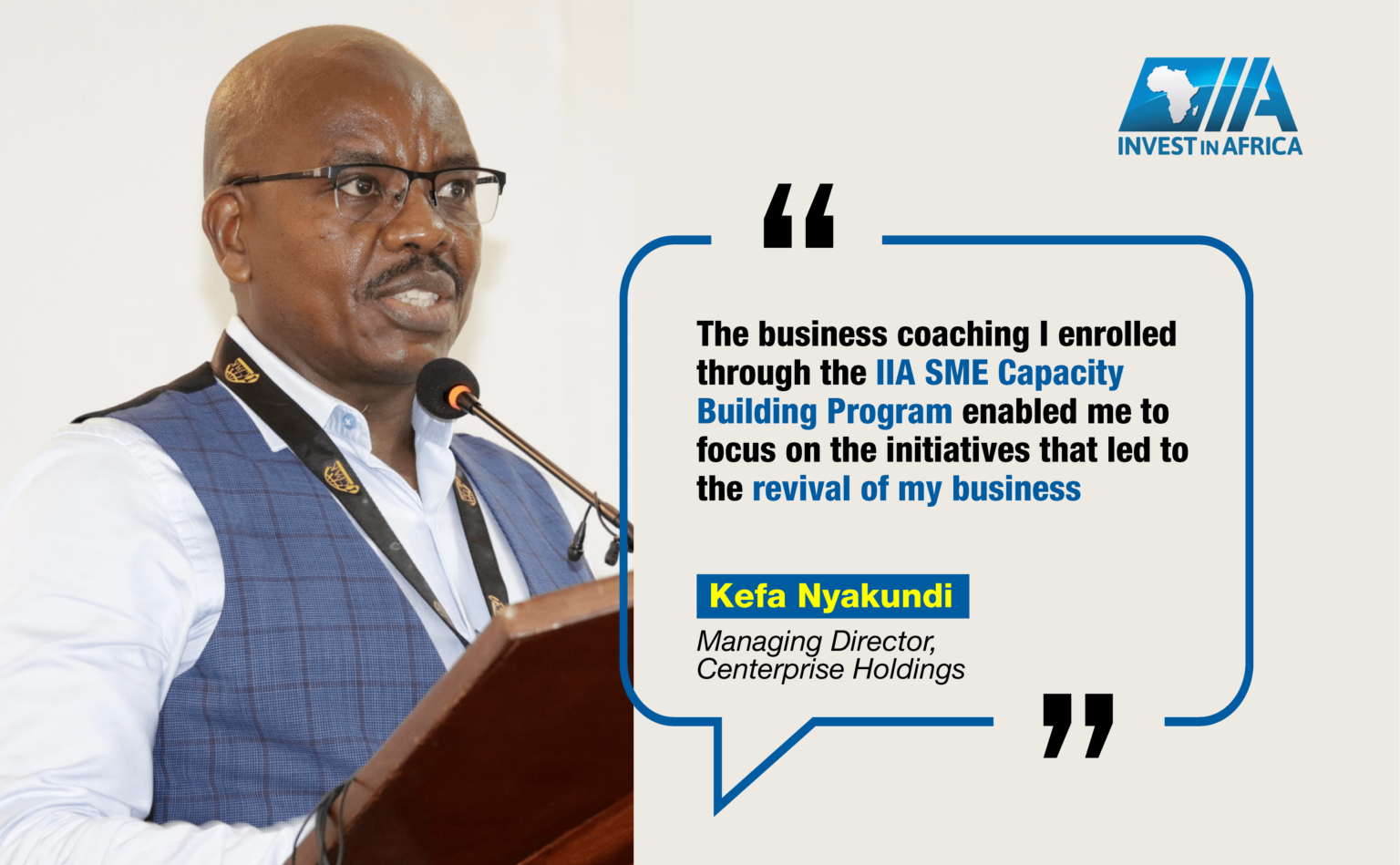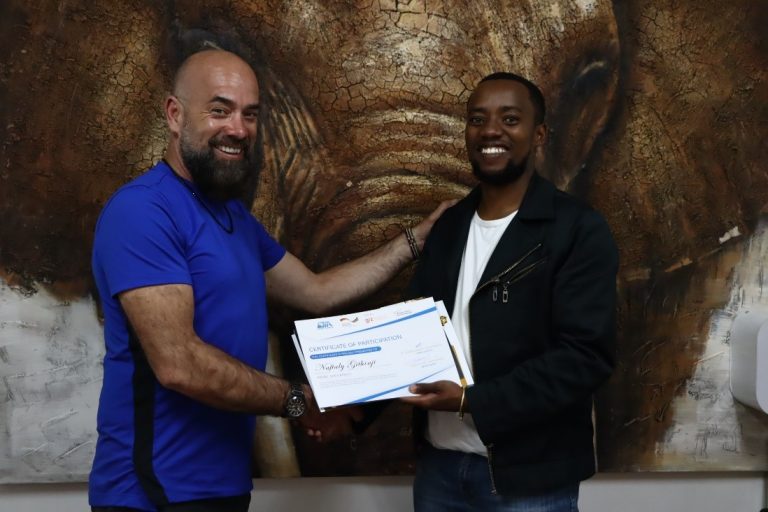Centerprise Holdings Builds Back Better Through IIA’s SME Capacity Building Program
“Coaching is essential for any business at any stage whether you are struggling, growing, or plateaued; it is something I would recommend to all entrepreneurs,” Kefa Nyakundi gladly reiterates.
In 2017 Kefa’s brainchild, Centerprise Holdings Ltd (CHL), which consisted of 3 companies, Centerprise Africa Limited (CAL), Africa Risk Institute (ARI), and Mtaji Technologies, suffered a market downturn because of the prolonged general elections. This led to most of the company’s shareholders jumping ship as the business was almost going under. Consequently, as the managing director and vision carrier, this was a call to restructure the company to adjust to the changing business terrain.
Hardly had the business picked up when Covid-19 hit in 2020. This blow came on the back of an already depressed business, which led to a difficult decision to close their office and operate virtually, lay off the staff, and convert them to contractors to ensure business survival.
These systemic disruptions caused ripples at Centerprise Holdings, creating the need to find new ways to adapt to the constantly changing market conditions to stay afloat.
While Kefa was struggling to spruce up his business and implement a merger strategy, Invest in Africa (IIA) launched a Small and Medium Enterprises (SMEs) Recovery and Resilience program that he quickly signed up for, hoping to improve his business operations.
At the start of the Covid-19 pandemic, Invest in Africa partnered with Mastercard Foundation to champion the survival and resilience of SMEs. This is under an initiative dubbed SMEs Recovery and Resilience. In collaboration with industry experts, IIA delivers bespoke enterprise development programs to SMEs through; Business Coaching, Virtual Masterclasses, peer-to-peer mentorship, and an investor readiness program.
Working with a certified business coach assigned to him was an enlightening experience as the coach doubled up as an accountability partner in presenting his deliverables.
“The coaching gave me so much clarity. It gave me focus, and I got the confidence to progress with the initiatives I was doing,” Kefa said in an interview.
Consequently, the coaching helped redesign and reorganize the business operations, reducing cost and creating a nimble business that could operate under the new normal.
Adopting the lean operating module developed through coaching and delivering their services using online tools scaled up their business, building it back better. Centerprise Holdings restarted the Mtaji project, an access to capital tech platform for SMEs, using the savings made and hope to launch the platform this quarter.
According to Kefa, the coaching worked as an impetus to growth and positioned the business in a sustainability trajectory. The two companies, Mtaji Technologies and Africa Risk Management Advisors (ARMA), now smarten up, offering one seamless bouquet product consisting of a digital financial marketplace and professional services firm.
In the next three years, he sees his business being at the heart of facilitating Intra- Africa Trade and taking advantage of the African Free Continental Trade Area opportunities to facilitate trade between and among African states.
With the digitization of their services, they will be able to operate across the continent with representative offices across Africa, with Nairobi being their headquarters.
The SME recovery and resilience program by IIA is still ongoing with diversification to incorporate additional partners and collaborators. This is geared towards delivering more impact to SMEs by enhancing their access to skills development opportunities, finance linkages, and new market streams.
Under this drive, IIA partnered with Unilever to champion inclusive sourcing by incorporating women, youth, persons with disabilities, and marginalized groups SMEs via Biashara.Now platform.
IIA also recently partnered with GIZ Business Scouts for Development Program to enhance the capacity of manufacturing SMEs in natural food clusters to drive sustainable supply chains, quality production, and food safety.




